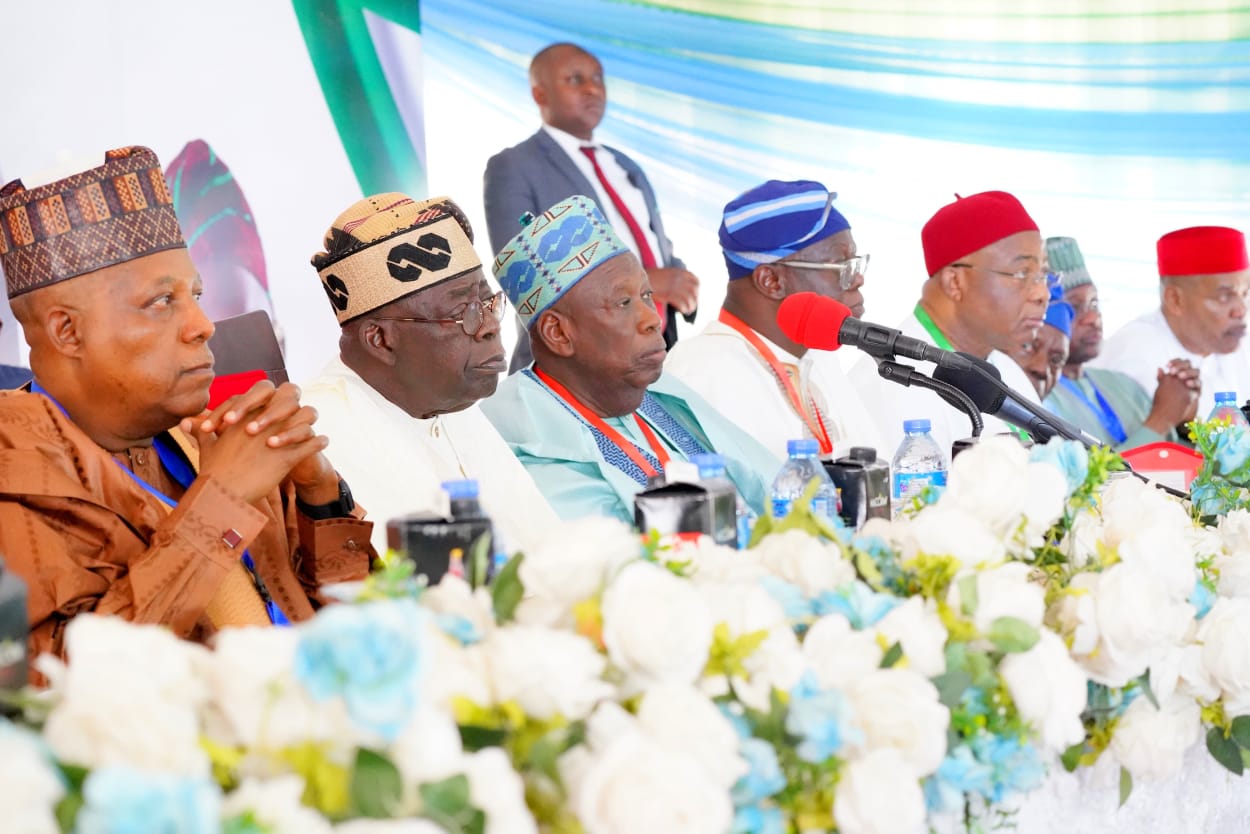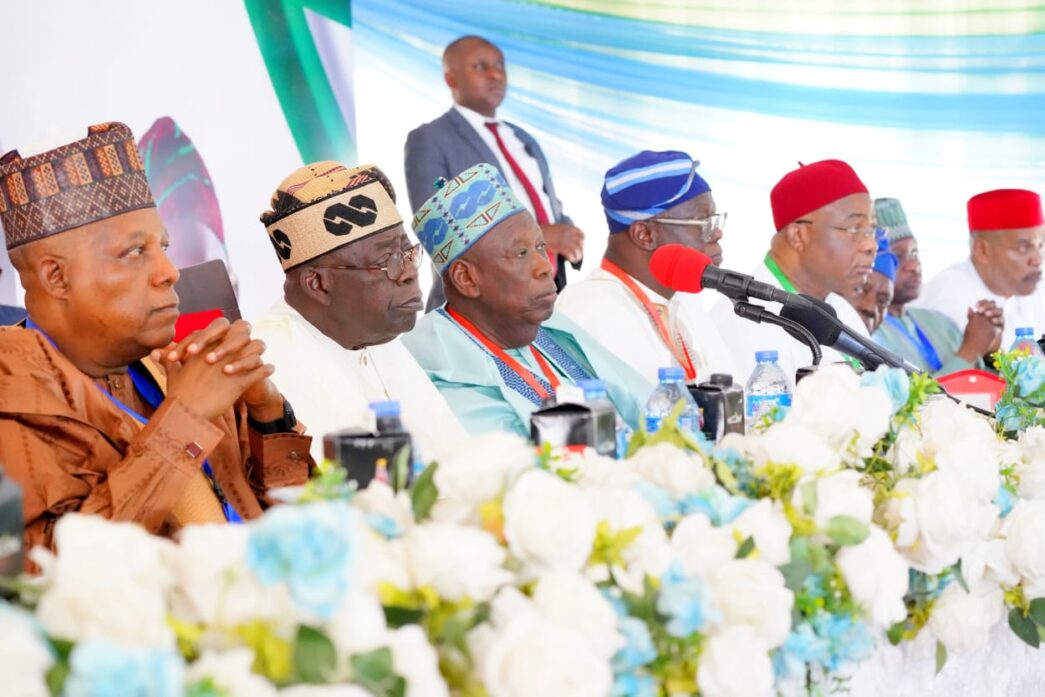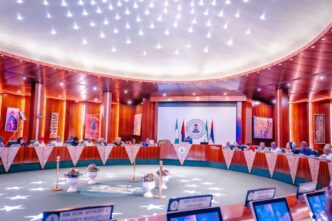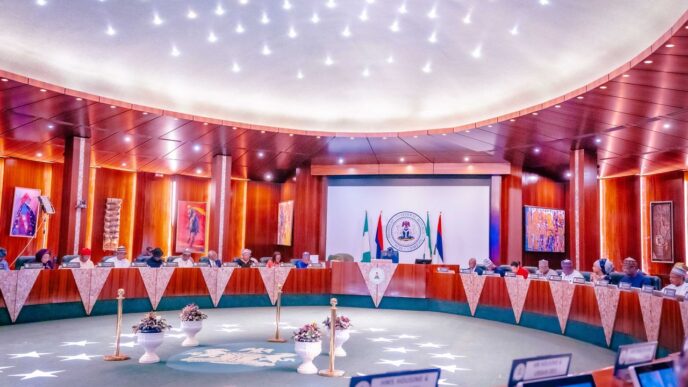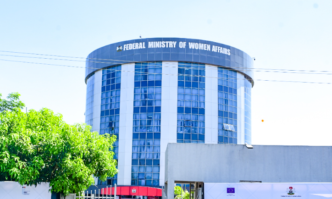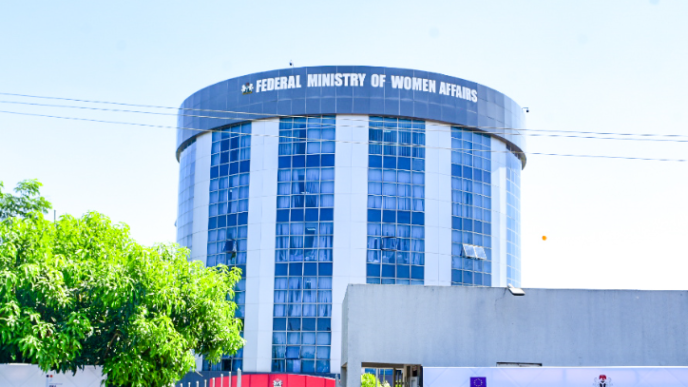Previous APC NEC meeting | File photo
BY OLUFEMI ADUWO
Political party hegemony, where a single party sustains prolonged dominance within a multiparty democratic framework without descending into a one-party state, represents a complex interplay of institutional, societal, and strategic dynamics. Globally, certain parties have achieved enduring ascendancy through ideological allure, organisational acumen, and astute politicking. This phenomenon, which avoids authoritarian monopolisation, warrants scrutiny for its implications on democratic pluralism and political competition. This discourse examines historical instances of such hegemony, elucidates their entrenchment mechanisms, and draws parallels with Nigeria’s contemporary political milieu, where opposition luminaries increasingly defect to the ruling All Progressives Congress (APC) despite economic adversities.
It explores whether this trend reflects President Bola Tinubu’s political stratagems or broader politicking dynamics and offers insights into how opposition parties might break this cycle, drawing on global precedents. The Indian National Congress dominated Indian politics from 1947 to 1977 and 1980 to 1989, its hegemony rooted in its pivotal role in the independence struggle against British rule. This historical legitimacy endowed Congress with widespread goodwill across urban intellectuals and rural peasantry. Its organisational strength, underpinned by a vast network of local leaders and grassroots cadres, permeated all societal levels. Ideologically malleable, Congress blended socialism, secularism, and nationalism to appeal to India’s heterogeneous electorate, navigating caste and religious divides. A fragmented opposition, comprising the Communist Party of India, Swatantra Party, and regional outfits, failed to unite due to ideological and parochial differences.
Congress exploited this disarray through patronage, disbursing state resources like contracts and appointments to secure loyalty. Despite competitive elections, the system tilted heavily in Congress’s favour. The Janata Party’s 1977 victory, capitalising on discontent with Indira Gandhi’s Emergency (1975–1977), demonstrated that unified opposition could disrupt entrenched dominance. Japan’s Liberal Democratic Party (LDP) maintained near-uninterrupted rule from 1955 to 1993 under the “1955 System.” The LDP forged a broad coalition of business elites, agrarian communities, and urban workers through pragmatic conservative and welfare-oriented policies. Its factional structure absorbed dissent, co-opting potential rivals internally and reducing external opposition’s necessity. A weak, divided opposition, led by the ideologically rigid Japan Socialist Party, lacked national appeal. Japan’s post-war economic miracle, orchestrated by the LDP, cemented voter loyalty, reinforced by pork-barrel politics funnelling resources to key constituencies.
Despite its dominance, Japan remained a multiparty democracy, with opposition parties contesting elections. The LDP’s 1993 ousting, driven by corruption scandals and economic stagnation, underscored the potency of opposition unity and public discontent in challenging hegemony.In Zambia, the United National Independence Party (UNIP) held power from 1964 to 1991, its legitimacy derived from its anti-colonial leadership. Under Kenneth Kaunda, UNIP centralised resources and co-opted regional leaders, neutralising rivals. Control over state institutions, including media and parastatals, shaped public discourse. The opposition African National Congress, confined regionally, lacked organisational clout. Zambia briefly became a one-party state (1973–1991), but UNIP’s earlier dominance operated within a nominal multiparty framework. The 1991 reintroduction of multiparty democracy, spurred by economic decline and public unrest, ended UNIP’s rule.
The Movement for Multiparty Democracy, uniting trade unionists and disaffected UNIP members, capitalised on discontent to defeat UNIP, highlighting unified opposition’s efficacy. South Africa’s African National Congress (ANC) has governed since 1994, its hegemony stemming from its role in dismantling apartheid. This moral authority, particularly among Black South Africans, coupled with control over state resources, sustains its dominance. A fragmented opposition, split between the Democratic Alliance and Economic Freedom Fighters, has struggled to challenge the ANC. However, the ANC’s loss of a parliamentary majority in 2024, amid economic stagnation, suggests that governance failures can erode legitimacy when opposition coalesces.
Several mechanisms underpin party hegemony.
Historical legitimacy, as seen in Congress, UNIP, and the ANC, fosters voter fidelity despite governance lapses. Control over state resources enables patronage, rewarding loyalists and co-opting adversaries, weakening opposition financially. A disunited opposition, hindered by ideological or regional schisms, allows ruling parties to prevail with pluralities. Economic successes or promises of prosperity, like Japan’s boom or the APC’s reformist rhetoric, bolster legitimacy. Strategic politicking, including co-opting opposition figures and exploiting incumbency, maintains dominance. The perception of inevitability, as in Nigeria, creates a bandwagon effect, drawing politicians to the ruling party. In Nigeria, the APC has entrenched hegemony since its 2013 formation and 2015 victory, ending the People’s Democratic Party’s (PDP) sixteen-year rule. Under President Tinubu, inaugurated in 2023, the APC has attracted defectors like Delta Governor Sheriff Oborevwori and former PDP vice-presidential candidate Ifeanyi Okowa, despite economic challenges, including inflation and fuel subsidy removal. Nigerian politics is patronage-driven, with state resources dictating influence.
Opposition figures defect to access appointments and contracts, as the APC’s control over institutions amplifies its inducements. The PDP, LP, and NNPP are weakened by internal schisms and ideological incoherence. The PDP, once dominant, is eroded by factionalism, while the LP relies on Peter Obi’s charisma, lacking national infrastructure. The NNPP remains regionally confined. This mirrors historical patterns in India, Japan, and Zambia, where fragmented opposition enabled hegemony.
The APC’s electoral successes and institutional control foster a perception of inevitability, exacerbated by Nigeria’s high-stakes political culture, where exclusion equates to oblivion. Tinubu, leveraging his Lagos political machine, excels in patronage and coalition-building, navigating Nigeria’s fractious landscape. However, the opposition’s failures—PDP’s disarray, LP’s reliance on personality, and NNPP’s limited reach—are equally culpable. Defections, while common globally, are problematic in Nigeria due to their patronage-driven scale, undermining accountability. The presidency denies engineering a one-party state, framing defections as endorsements of Tinubu’s agenda, but critics warn of democratic erosion, citing historical parallels like the Second Republic’s instability.
To counter APC hegemony, Nigeria’s opposition must adopt strategies from global precedents. First, they should forge coalitions, as seen with India’s Janata Party or Zambia’s MMD, uniting PDP, LP, and NNPP to pool resources. This requires reconciling competing interests, a historical challenge in Nigeria. Second, the opposition must develop ideological clarity, moving beyond neoliberal convergence to offer a populist vision appealing to youth, workers, and rural voters.
Third, grassroots mobilisation is crucial, transitioning from personality-driven campaigns to robust party structures, emulating Congress’s grassroots strength. Fourth, a credible economic blueprint addressing unemployment, inflation, and insecurity could perspective, as seen in India, Japan, and Zambia, could counter the APC’s reformist narrative.
Finally, strengthening electoral institutions through reforms to ensure the Independent National Electoral Commission’s autonomy, enforce campaign finance rules, and curb vote-buying would foster equitable competition. These measures, inspired by global successes, could dismantle APC dominance, revitalising Nigeria’s democratic pluralism
Olufemi Aduwo, president & permanent representative of CCDI to ECOSOC/United Nations, can be contacted via [email protected];[email protected]
Views expressed by contributors are strictly personal and not of TheCable.
